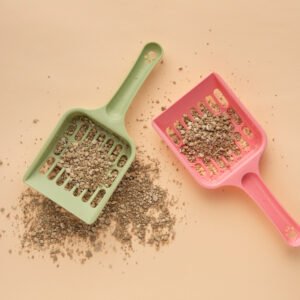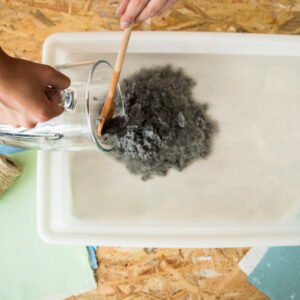You’re standing at a drilling site in Rajasthan, watching your expensive drilling operation grind to a halt because your bentonite isn’t performing as expected. The drilling fluid is losing its viscosity, the borehole walls are caving in, and your project timeline is slipping away. This scenario plays out more often than you’d think across Indian drilling operations, and it usually comes down to one critical decision – choosing between OCMA DFCP-4 and API Grade Bentonite for your drilling fluid needs.
If you’ve ever found yourself scratching your head over which bentonite specification to choose, you’re not alone. Most drilling professionals in India face this dilemma regularly, and the wrong choice can cost lakhs in downtime and material wastage. In this detailed comparison, I’ll break down everything you need to know about these two popular bentonite standards, helping you make the right choice for your next project.
By the end of this post, you’ll understand the key differences, performance characteristics, and practical applications of both OCMA DFCP-4 and API Grade Bentonite.
What Exactly Are OCMA DFCP-4 and API Grade Bentonite?
Before we dive into the comparison, let’s get our basics straight. OCMA DFCP-4 stands for Oil Companies Materials Association Drilling Fluid Components Publication-4. This international standard was developed specifically for offshore and challenging drilling environments. Think of it as the premium grade bentonite that’s designed to handle the toughest drilling conditions you’ll encounter in Indian operations. API Grade Bentonite, on the other hand, follows the American Petroleum Institute’s 13A specification.
This is perhaps the most widely recognised bentonite standard globally and has been the go-to choice for drilling operations worldwide for decades.
Both standards serve the same fundamental purpose creating effective drilling fluids that can:
- Maintain borehole stability
- Remove drill cuttings efficiently
- Provide adequate cooling and lubrication
- Control formation fluid influx
But here’s where things get interesting their performance characteristics can vary significantly depending on your specific drilling conditions.
Key Technical Differences Between OCMA DFCP-4 and API Grade Bentonite
Yield Performance Comparison
Let me start with what matters most to your bottom line yield performance.
OCMA DFCP-4 Yield Characteristics:
- Typically yields 16-18 m³ of 15 cP viscosity mud per tonne
- Superior performance in high-salinity environments
- Maintains consistency even with chloride hardness up to 10,000 ppm
- Better suited for challenging water conditions common in parts of Gujarat and Rajasthan
API Grade Bentonite Yield Characteristics:
- Standard yield of 22.5 m³ (91-100 barrels) of 15 cP mud per tonne
- Optimised for freshwater drilling systems
- Some advanced API bentonites can yield over 200 barrels per tonne, while standard western sodium bentonite yields 90 barrels per tonne minimum
- More cost-effective for standard drilling operations
Rheological Properties Analysis
The rheological behaviour of your drilling fluid can make or break your operation.
OCMA DFCP-4 Rheological Profile:
- Enhanced gel strength development
- Better temperature stability up to 150°C
- Superior performance in high-pressure environments
- Maintains viscosity under extreme shear conditions
API Grade Bentonite Rheological Profile:
- Minimum viscometer dial reading of 30 at 600 RPM, indicating the fluid’s capacity to sustain continuous flow under high shear circumstances
- Consistent plastic viscosity across different concentrations
- Well-documented performance parameters
- Predictable behaviour in standard drilling conditions
Chemical Composition and Purity Standards
The devil is in the details when it comes to chemical composition.
OCMA DFCP-4 Composition Requirements:
- Lower sodium carbonate content (typically <2%)
- Stricter heavy metal restrictions
- Enhanced montmorillonite content (>85%)
- Better suited for environmentally sensitive areas
API Grade Bentonite Composition:
- Standard sodium carbonate content allowance
- Proven track record of safety and performance
- Consistent montmorillonite content
- Premium-grade sodium montmorillonite clay that meets API 13A Section 9 Specification
Performance Analysis: Where Each Standard Excels
OCMA DFCP-4 Performance Advantages
Superior in High-Salinity Conditions
If you’re drilling in coastal areas of Gujarat or Odisha where saltwater intrusion is common, OCMA DFCP-4 is your champion. I’ve seen operations where API grade bentonite failed to maintain proper viscosity in high-salinity formations, while OCMA DFCP-4 continued performing flawlessly.
The key difference lies in its enhanced sodium activation and superior ion-exchange capacity.
Better Temperature Stability
For deep drilling operations or geothermal projects, OCMA DFCP-4 maintains its properties at higher temperatures. This means fewer additive requirements and more stable drilling fluid performance throughout your operation.
Environmental Compliance
With stricter environmental regulations across India, OCMA DFCP-4’s lower heavy metal content and reduced chemical additive requirements make it increasingly attractive for sensitive locations.
API Grade Bentonite Performance Strengths
Cost-Effectiveness for Standard Operations
For routine water well drilling or standard oil and gas operations, API Grade Bentonite often provides the best value proposition. The lower material cost combined with proven performance makes it the practical choice for many Indian drilling contractors.
Widespread Availability and Support
You’ll find API Grade Bentonite readily available across India, from major cities to remote drilling locations. This widespread availability translates to better supply chain reliability and competitive pricing.
Proven Track Record
With decades of successful applications worldwide, API Grade Bentonite offers predictable performance that drilling engineers can bank on. The extensive documentation and case studies available make it easier to optimize your drilling fluid programs.
Application-Specific Recommendations
When to Choose OCMA DFCP-4
Offshore Drilling Operations The harsh marine environment demands superior bentonite performance, making OCMA DFCP-4 the logical choice.
Challenging Geological Formations If you’re dealing with reactive shales, high-pressure zones, or unstable formations, OCMA DFCP-4’s enhanced properties provide better borehole stability.
Environmental Sensitive Areas For operations near water bodies, wildlife sanctuaries, or urban areas, OCMA DFCP-4’s cleaner composition offers better environmental compliance.
Deep Drilling Projects When drilling beyond 3,000 metres, the superior temperature stability of OCMA DFCP-4 becomes crucial for maintaining drilling fluid properties.
When API Grade Bentonite is the Better Choice
Standard Water Well Drilling For routine water well operations across rural India, API Grade Bentonite provides adequate performance at lower costs.
Budget-Conscious Projects When project margins are tight, API Grade Bentonite’s lower material cost can significantly impact your bottom line.
Freshwater Drilling Systems In areas with good quality freshwater for drilling fluid preparation, API Grade Bentonite performs excellently.
Established Operations If your drilling crews are familiar with API specifications and have optimised procedures around them, switching may not provide sufficient benefits.
Cost Analysis: The Real-World Economics
Let’s talk numbers because that’s what matters in business.
Initial Material Costs
OCMA DFCP-4 typically costs 15-25% more than API Grade Bentonite. However, this initial cost difference often gets balanced out by other factors.
Total Project Economics
OCMA DFCP-4 Economic Factors:
- Higher initial cost per tonne
- Lower consumption rates in challenging conditions
- Reduced additive requirements
- Fewer drilling fluid maintenance issues
- Better borehole stability leading to faster drilling rates
API Grade Bentonite Economic Factors:
- Lower initial material cost
- Higher consumption rates in difficult conditions
- More predictable budgeting
- Wider supplier base leading to competitive pricing
- Well-established supply chains
Break-Even Analysis
For most drilling operations in India, the break-even point between OCMA DFCP-4 and API Grade Bentonite occurs around:
- 2,000-2,500 metres of drilling depth
- High-salinity formation encounters
- Extended drilling duration (>30 days)
- Challenging geological conditions
Quality Considerations and Supplier Selection
Ensuring Consistent Quality
Regardless of which standard you choose, quality consistency remains paramount.
Key Quality Indicators to Monitor:
- Batch-to-batch consistency in yield performance
- Moisture content control
- Screen analysis results
- Chemical composition verification
- Storage and handling procedures
Supplier Evaluation Criteria
When selecting your bentonite supplier, consider these factors:
Technical Support Capabilities Does your supplier provide on-site technical support and drilling fluid optimisation services?
Quality Assurance Systems Look for suppliers with robust quality control systems and regular third-party testing.
Supply Chain Reliability Consistent availability and delivery schedules are crucial for project success.
Local Presence and Support Having local technical support can make a significant difference when issues arise during drilling operations.
Future Trends and Developments
The bentonite industry is evolving rapidly, driven by environmental concerns and technological advances.
Emerging Trends to Watch
Environmental Regulations Stricter environmental compliance requirements are favouring cleaner bentonite grades like OCMA DFCP-4.
Technology Integration Smart drilling systems are demanding more consistent and predictable drilling fluid properties.
Sustainability Focus Increased emphasis on sustainable drilling practices is influencing bentonite selection criteria.
Cost Optimisation Advanced drilling fluid management systems are helping optimise bentonite consumption and reduce waste.
Making the Right Choice for Your Operation
So, which one wins in the OCMA DFCP-4 vs API Grade Bentonite battle? The answer isn’t straightforward because it depends entirely on your specific requirements.
Choose OCMA DFCP-4 when:
- Drilling in challenging environments
- Environmental compliance is critical
- Long-term project economics favour premium performance
- Technical specifications demand superior properties
Choose API Grade Bentonite when:
- Cost is the primary consideration
- Drilling in standard freshwater conditions
- Established procedures are built around API specifications
- Material availability and supply chain reliability are crucial
Conclusion
The choice between OCMA DFCP-4 and API Grade Bentonite isn’t about finding a universal winner – it’s about finding the right fit for your specific drilling application. Both standards have their place in the Indian drilling industry, and successful drilling contractors often use both depending on project requirements. The key is understanding your drilling environment, project economics, and performance requirements to make an informed decision. Whether you’re dealing with challenging offshore conditions that demand OCMA DFCP-4’s superior performance or standard onshore operations where API Grade Bentonite’s cost-effectiveness shines, the right choice comes down to matching the product to your specific needs.
At CMS Industries, we understand these complexities and can help you navigate the decision-making process. Our technical team has extensive experience with both OCMA DFCP-4 and API Grade Bentonite applications across diverse Indian drilling environments, ensuring you get the right bentonite comparison analysis for your next project.
Frequently Asked Questions
Q1: What is the main difference between OCMA DFCP-4 and API Grade Bentonite?
OCMA DFCP-4 is designed for challenging drilling environments with superior performance in high-salinity conditions, while API Grade Bentonite offers proven, cost-effective performance for standard drilling operations.
Q2: Which bentonite grade is more cost-effective for water well drilling?
API Grade Bentonite is typically more cost-effective for standard water well drilling operations due to its lower material cost and adequate performance in freshwater systems.
Q3: Can OCMA DFCP-4 be used in place of API Grade Bentonite?
Yes, OCMA DFCP-4 can generally replace API Grade Bentonite, often providing superior performance. However, the higher cost may not be justified for standard drilling applications.
Q4: Which standard is better for environmental compliance?
OCMA DFCP-4 typically offers better environmental compliance due to lower heavy metal content and reduced chemical additive requirements, making it suitable for environmentally sensitive areas.
Q5: How do I choose between these two bentonite standards?
Consider your drilling environment, budget constraints, performance requirements, and environmental compliance needs. Challenging conditions favour OCMA DFCP-4, while standard operations often benefit from API Grade Bentonite’s cost-effectiveness.







